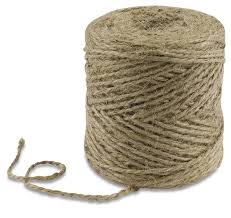
中文词源
twine 双股线,合股线,线,绳
来自 twin 的对词,引申词义双股线,合股线,线,绳等。
英语词源
- twine (n.)
- "strong thread made from twisted strands," Old English twin "double thread," from Proto-Germanic *twiznaz "double thread, twisted thread" (cognates: Dutch twijn, Low German twern, German zwirn "twine, thread"), from the same root as twin (adj.).
- twine (v.)
- "to twist strands together to form twine," c. 1300, from twine (n.) and probably also from Old Norse tvinna "to double." Sense of "to twist around something" (as twine does) is recorded from late 14c. Related: Twined; twining.
权威例句
- 1. These strands of molecules twine around each other to form cable-like structures.
- 这些分子链彼此缠绕,形成缆线状的结构。
- 2. He tied the parcel with twine.
- 他用细绳捆包裹.
- 3. As the flimsy constructs soared, the men paid out twine until the kites reached three or four thousand feet.
- 随着这轻薄的东西向上飞升,这些人慢慢放出细绳,直到风筝飞到三四千英尺高。
- 4. Their cardboard boxes were wrapped and tied neatly with waxed twine.
- 他们的纸板盒用蜡线扎得整整齐齐.
- 5. The vines twine about the frame and form a shade.
- 瓜藤盘绕在藤架上,形成了一片荫凉.
